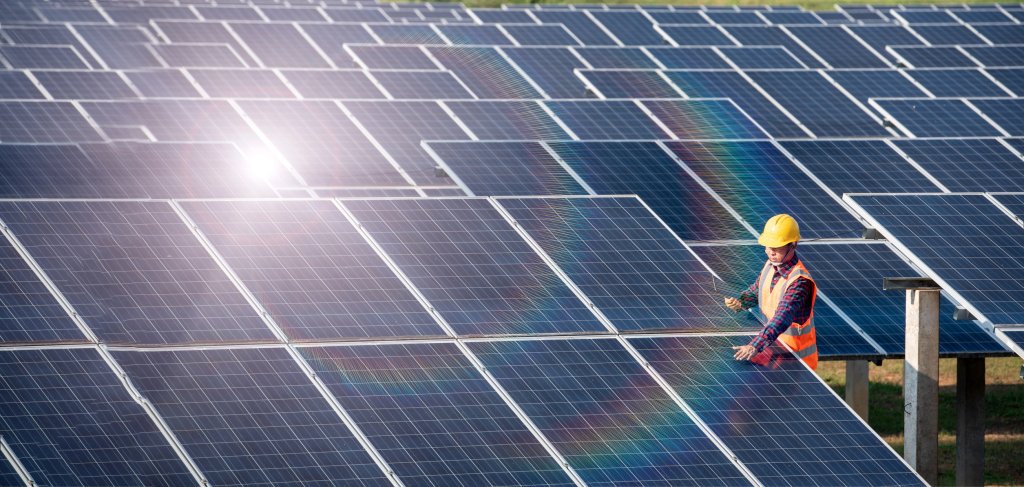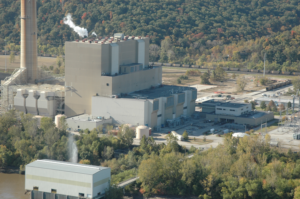14:00
News Story
Parson signs bill helping utilities shutter coal plants, transition to renewable power
At the same time, the governor signed legislation barring cities from prohibiting new natural gas hookups
Missouri utilities will be able to shutter more coal plants, speeding their transition to renewable energy, under a bill signed by Gov. Mike Parson Tuesday.
Parson, a Republican, signed into law a policy known as “securitization,” which allows utility companies to refinance debt they issued to build coal plants and close the facilities early without taking a financial hit. With the savings, they can invest in more renewable energy projects, including wind and solar farms.
“It’s just another tool in the toolbox that utilities can use to refinance their burdensome coal debt and use the savings to invest in clean energy and create jobs right here in Missouri,” said Andy Knott deputy regional director for Sierra Club’s Beyond Coal Campaign.
But at the same time, Parson signed legislation prohibiting local governments from banning natural gas hookups on newly-built buildings, a policy Knott says will “limit our ability to address climate change in Missouri.”
He called it an “affront to local control.”
Electrifying buildings, Knott said, is important to limit greenhouse gas emissions that come from burning natural gas.
“That’s really what we need to do as a nation in order to avert the worst impacts of climate change,” Knott said.
Securitization is the rare issue that brings together monopoly utility companies, environmentalists and industrial groups. Advocates have long said it would be a game changer for the environment to help utilities transition away from coal, which releases huge amounts of greenhouse gases. Proponents also argue it will save Missouri residents huge sums on their utility bills.
Securitization doesn’t require utilities to shut down coal operations. It only offers a financial incentive to do so.
Kansas adopted similar legislation this spring, which Gov. Laura Kelly, a Democrat, signed into law. The Kansas legislation also allows utilities to stretch over time the exorbitant natural gas bills generated when prices spiked amid a deep freeze in February that forced rolling blackouts.
Both Evergy and Ameren supported the securitization legislation in Missouri. Both companies have stressed, though, that they have plans to reach net-zero carbon emissions that do not rely on securitization.
Ameren plans to invest $8 billion in renewable energy between now and 2040 and achieve net-zero emissions by 2050.
“Ameren Missouri is committed to clean and our plan focuses on getting the energy we provide our customers as clean as we can, as fast as we can, without compromising on affordability or reliability,” said Warren Wood, vice president of regulatory and legislative affairs for Ameren Missouri. “Securitization has the opportunity to be a useful tool in the future.”
Evergy pledges net-zero by 2045, again, without securitization. But it plans to operate some coal plants beyond 2040.
In a statement, Evergy communications manager Kaley Bohlen said the company appreciated Missouri’s passage of securitization.
“Utilities and the Missouri Public Service Commission gained a valuable tool that will save money for customers related to the retirement of aging power plants and unusual events like the February winter storm,” Bohlen said.
Both Ameren and Evergy have filed integrated resource plans with Missouri regulators. Collectively, the two companies are looking at retiring two coal plants by 2025 — the Lawrence Energy Center in Lawrence, Kan., and the Meramec Power Plant in St. Louis.
Our stories may be republished online or in print under Creative Commons license CC BY-NC-ND 4.0. We ask that you edit only for style or to shorten, provide proper attribution and link to our website. AP and Getty images may not be republished. Please see our republishing guidelines for use of any other photos and graphics.





